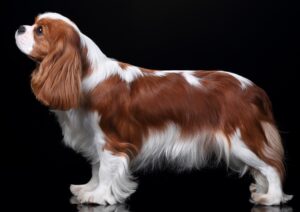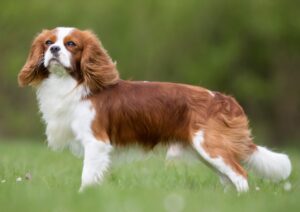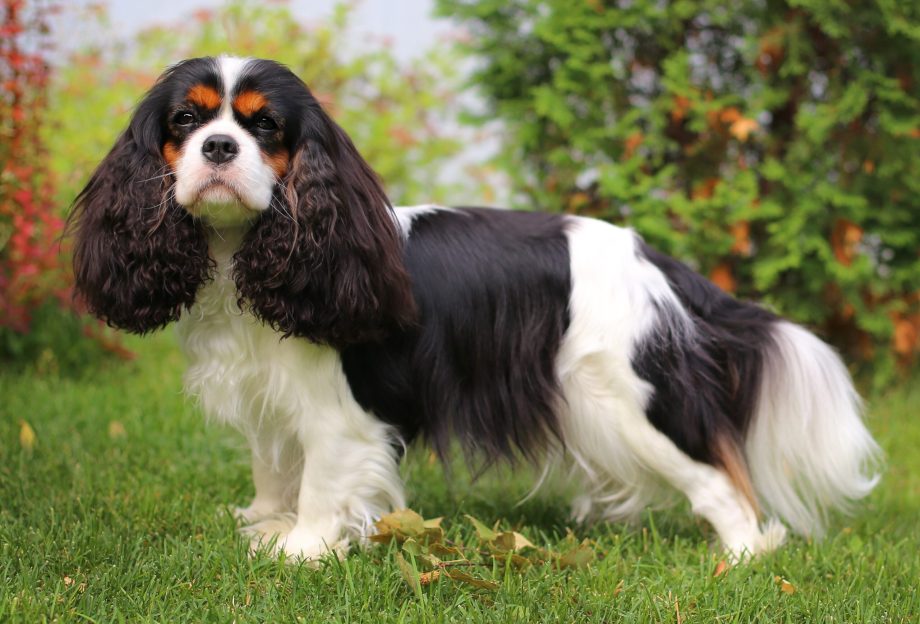As the name suggests, the Cavalier King Charles Spaniel has royal connections and was particularly favoured by King Charles II who doted on this breed.
And is not hard to see why. This breed is affectionate, devoted and exceptionally good-natured. They make wonderful companions and lap dogs, whilst also possessing the sporting and athletic prowess of other spaniels. As such, they thrive on a good amount of exercise and lots of human companionship. They are a perfect family dog, getting on well with other pets and making excellent playmates for children too. The Cavalier is one of the largest of the toy breeds and is distinguished by its long silky coat, rounded skull and large, round dark brown eyes and gentle expression.
History


Toy spaniels date back to the 16th century when they were bred down from sporting breeds to be gentle lap dogs and comforters to the nobility. Both Charles I and Charles II were devoted to this breed, with the breed named in the latters honour. Early Cavaliers had a relatively long muzzle but subsequent breeding with pugs and Pekingese led to a flatter face and more domed skull. This dismayed some breeders, who preferred the more traditional head shape and in the early 19th century the breed separated into two distinct varieties the King Charles Spaniel, with the altered profile and the old-style Cavalier King Charles Spaniel with its longer muzzle.






